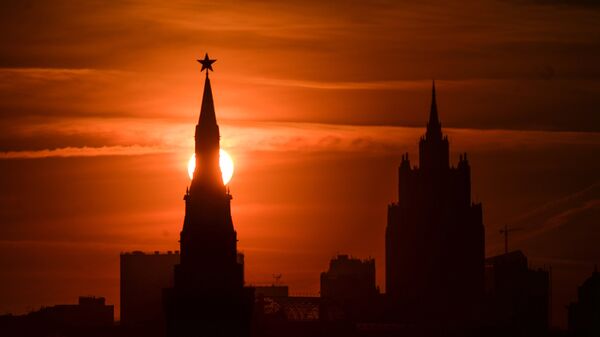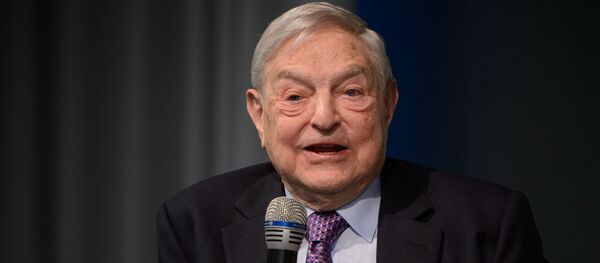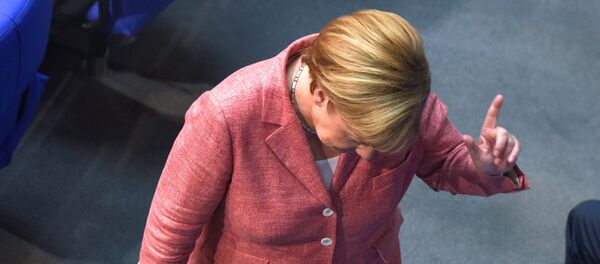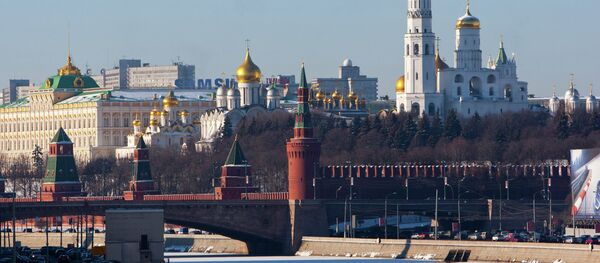Although Obama reiterated that Washington and Brussels should keep anti-Russian sanctions in place for another year over the situation in Ukraine, there is a great deal of uncertainty about the future of the West's anti-Russian policies after Donald Trump's win in the US presidential election.
During his recent phone conversation with Vladimir Putin the newly elected US President underscored he is "looking forward to having a strong and enduring relationship with Russia."
Furthermore, it was reported that Trump named retired Lieutenant General Michael Flynn as his National Security Adviser. As Russian online media outlet Vzglyad highlighted Friday, Flynn is known as a proponent of US-Russian military cooperation in Syria.
In the face of the potential US foreign policy shift, New York Times magazine published an article entitled "As Obama Exits World Stage, Angela Merkel May Be the Liberal West's Last Defender."
"Germany's chancellor, Angela Merkel, has emerged as the last powerful defender of Europe and the trans-Atlantic alliance after the election of Donald J. Trump," the media outlet claimed, admitting, however, that the "defender" is "tired" and "under siege seemingly from all directions."
"The media cliché ahead of the visit was that the departing President would 'pass the baton' to Chancellor Angela Merkel on the last foreign trip of his tenure, leaving her in charge of the West now that the isolationists have taken Washington," the journalist writes.
"But with the UK on its way out of the EU and Obama on his way out of the White House, Merkel will have to fight much harder to keep her hesitant allies in line going forward," Shuster stresses.
The journalist pointed out that even before Trump's election the European Union had already been divided over refugee policies, anti-Russian sanctions, economic stagnation and the rise of "the populist right" within Europe.
With Britain's withdrawal from the EU Merkel has found herself in a weakened position, he admitted.
To add insult to Berlin's injury the UK political establishment is seemingly absolutely satisfied with Trump's election.
"I believe that this is a great opportunity for us in the UK to build on that relationship with America that is of fundamental economic importance for us but also of great importance for stability and prosperity in the world," British Foreign Secretary Boris Johnson emphasized, commenting on Trump's win.
In contrast to Angela Merkel, whose response to Trump's election looked like a kind of reprimand, or "reintegrative shaming" as The Independent remarked, UK Prime Minister May's congratulation was "the warmest."
"Of all the European leaders' lukewarm congratulations to Trump, Prime Minister Theresa May's was the warmest," British journalist John Lloyd says in his op-ed for Reuters.
"Though US nationalism was a strong theme in Trump's campaign, closeness to Britain is part of it: The former colony taking the faded imperial titan into its embrace," he says, adding that for the UK, the attachment to the EU "is not deep, layered as it is with historic distrust and incomprehension."
While Britain is seemingly unlikely to support Merkel's bid for the role of the "liberal West's last defender," France, Austria and Germany itself have recently found themselves engulfed by the "populist tide," observers note.
For their part, Greece, Italy, Hungary, Slovakia and Cyprus are pushing to ease sanctions on Russia.
Needless to say, the outcome of Bulgarian and Moldovan presidential elections, which led to the victory of two pro-Russian candidates, has added fuel to the fire.
As the British left-wing media outlet Guardian remarked: "The US election has transformed a farewell presidential visit [of Barack Obama] from a chance for cautious optimism into a trip that is full of foreboding and uncertainty."





